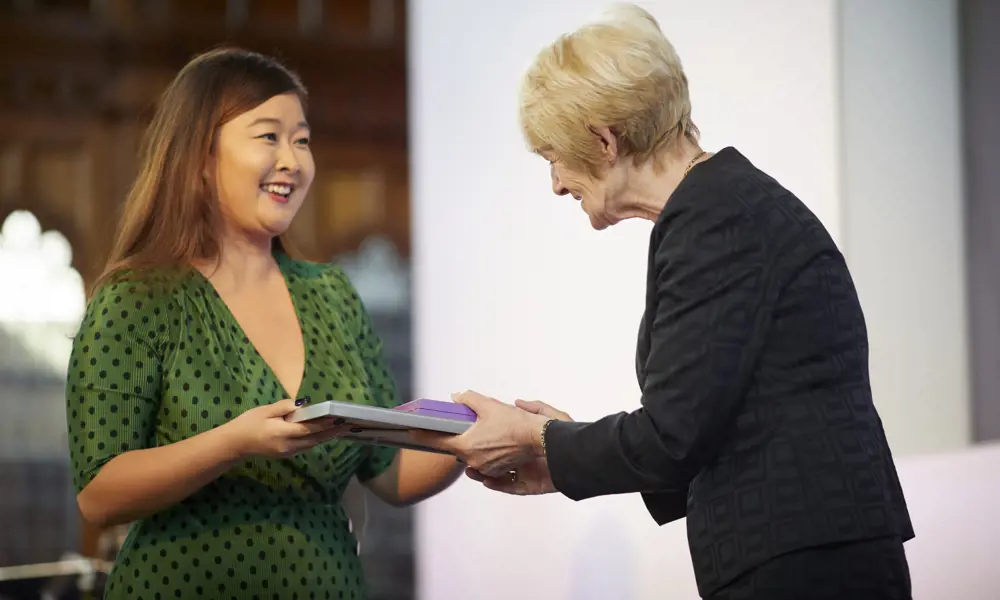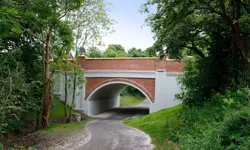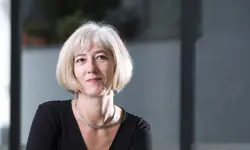
Q&A: Natalie Cheung
Quick-fire facts
Age:
25
Qualifications:
BEng (Hons) Civil Engineering, University of Manchester. Currently working on a Chartered Management Institute qualification.
Biggest engineering inspiration:
Seeing people of all ages and backgrounds use the tube in London everyday.
Most-used technology:
Spotify for music and podcasts. Spotify knows that I’ll like a song before I’ve even heard it!
Three words that describe you:
Motivated, perceptive, energetic
Why did you first become interested in engineering?
I was inspired by the film I, Robot and became very interested in artificial intelligence, computer science and technology. That was my gateway to considering engineering as a career. After exploring the engineering disciplines, I applied to study civil engineering at university. This was largely inspired by a week’s work experience at a construction project management firm when I was 16. Without this experience, I would never have heard of civil engineering. I was really lucky to meet people involved with cost management, project management, architecture and different engineering areas, which taught me why these roles are important for the built environment.
How did you get to where you are now?
I was good at maths at school, which seems like a very common story for engineers. I hope that engineering industries will open and promote more opportunities for young people even if they are not confident about maths! I chose maths, computing and physics for my A Levels, with Latin and further maths at AS Level. I went on to study civil engineering at the University of Manchester and that’s when I first started volunteering as a STEM Ambassador. I organised a student-led group that ran robotics workshops with female pupils across Manchester and Yorkshire. I was also fortunate enough to gain experience working at Crossrail’s Farringdon Station site during my summer holidays. This opened my eyes to the opportunities for civil engineers in the transport sector.
This opened my eyes to more opportunities to use my engineering skills – the options are limitless
After university, I completed my graduate development training at AECOM in their railways team. I worked on the access points that allow maintenance staff and vehicles to get to railway tracks. I also helped design a new train station in Kent! My favourite project was for works related to HS2 and London Euston station, for which I was a deputy project manager. HS2 is a huge rail project to connect London with Birmingham, Manchester and Leeds and I am excited to have played a small part in this massive collaborative project.
While working at AECOM, I also took a year-long sabbatical to volunteer overseas and travel. As part of my voluntary work, I supported a solar energy enterprise in Zambia to provide power to rural communities. This opened my eyes to more opportunities to use my engineering skills – the options are limitless. After my sabbatical, I became an AECOM corporate social responsibility representative alongside my role as civil engineer. I’m so passionate about the benefits of volunteering and bring that enthusiasm to my current role at STEM Learning.
Why is it important to inspire the next generation?
There are a lot of misconceptions about careers in engineering. Some people believe you need to be super brainy and high-achieving in maths to be an engineer. Others think that engineering jobs are too dangerous and dirty. It’s important to bust these misconceptions to ensure that young people, as well as their parents and teachers, know the opportunities that are open to them in engineering. I love working with different engineering employers to get engineers engaging with young people. I meet people in a wide range of roles, some in sectors that I never knew existed. Not only does this raise aspirations for more diverse people to join the industry, but it will also help build the future talent pipeline to fill the expected skills shortage.
What is your favourite thing about being an engineer?
Engineers work in teams and solve real-world problems! I love being part of engineering committees that are pushing for progress, whether that’s in safety, inclusion, or professional development for example. Engineering creates solutions for all people so I hope to see real intersectional diversity and inclusion in the future.
What does a typical day at work involve for you?
I’m office-based but spend about half the week in other people’s workplaces. A key part of my job is to manage relationships with our partners. They could be councils, companies, schools, professional engineering institutions, or government departments. I attend events to promote the STEM Ambassador scheme and support companies to develop their STEM outreach programmes. My favourite part of the job is delivering communication and engagement training to STEM Ambassadors so that they are ready to engage with young people.
What would be your advice to young people looking to pursue a career in engineering?
You probably already have a lot of the skills that you need to be an engineer. Search online for opportunities to use them. If you can get any experience of an engineering workplace while still studying, make the most of it. Nothing can beat seeing a real engineering workplace in action.
If you can get any experience of an engineering workplace while still studying, make the most of it. Nothing can beat seeing a real engineering workplace in action
What’s next for you?
With other members of the Women’s Engineering Society London Cluster, I helped organise our first work shadowing campaign this summer. We want to provide opportunities, like the one I had, for more female students to gain experience of engineering workplaces. We hope to break down one of the barriers to joining the industry and grow our work shadowing campaign for next year.
This summer, I also attended the BIG Event, a STEM communicators conference on a bursary award. I hosted a panel discussion and received public speaking training from the TED team in the US. I want to build on these public speaking experiences, and apply what I’ve learned about public engagement.
Maybe my job title will include ‘engineer’ again, who knows?
Keep up-to-date with Ingenia for free
SubscribeRelated content
Civil & structural

Building the Shard
The Shard is one of London's most iconic buildings. The tallest in Western Europe, it was designed by Italian architect Renzo Piano and dominates the city’s skyline. Ingenia spoke to John Parker, project director for structural engineers WSP, who outlined the engineering decisions made in building the enormous steel and glass structure.

FlexiArch
Arch bridges are strong, durable and require little maintenance. However, very few had been built since the early 1900s until the FlexiArch was developed and launched in 2007. Now, there has been a minor renaissance for this ancient form of construction.

Creating user-friendly buildings
For Michelle McDowell, a former Business Woman of the Year, a passion for joined-up design thinking and building information modelling with a user-friendly approach has enabled her to pioneer revolutionary changes in her field.

Troja Bridge
In November 2014, one of the world’s largest network arch bridges was officially opened in Prague. The UK may soon have its first network arch bridge if the go-ahead is given for a new rail project in Manchester.
Other content from Ingenia
Quick read

- Environment & sustainability
- Opinion
A young engineer’s perspective on the good, the bad and the ugly of COP27

- Environment & sustainability
- Issue 95
How do we pay for net zero technologies?
Quick read

- Transport
- Mechanical
- How I got here
Electrifying trains and STEMAZING outreach

- Civil & structural
- Environment & sustainability
- Issue 95